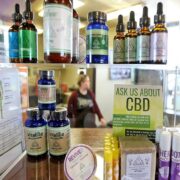In a medical DNA test, an approved physician, such as a doctor or a nurse, will take a sample of your skin, blood, saliva, or even hair. Pregnant mothers can also provide an amniotic fluid sample. Below are some things you may learn from a DNA test.
Table of Contents
1. Hereditary Disease
Typically, doctors engage in genetic tests as an aid to confirm the diagnosis of congenital disease in patients experiencing specific symptoms. Medically genetic testing might pinpoint 2,000 inherited conditions and diseases. These tests can find some of the hereditary diseases: cystic fibrosis, muscular dystrophy, and familial hyperlipidemia.
One of the advantages of genetic tests is that doctors can detect genetic diseases in all life stages. If doctors can identify some of these diseases before symptoms worsen, they will help you plan for the treatment.
2. Condition That Can Affect Your Unborn Kid
At times utterly healthy persons might have DNA mutations related to various genetic conditions. These people are carriers, meaning that their DNA contains a single gene mutation copy for the inherited disease or condition.
The person’s general health is not affected as their DNA has an extra copy of a similar gene without the mutation. However, if it turns out that two future parents are carriers of a similar genetic disorder, their kid could get the disease. With this information, parents can make informed decisions about their family planning.
3. Hereditary Cancers
Although not 100% certain, some genetic tests may give people information on whether they have hereditary mutations related to different kinds of hereditary cancer. Some of these types are melanoma, breast cancer, sarcoma, and colon cancer. A common cancer-associated mutation that could control DNA is the BRCA 1/BRCA 2 gene mutation. If you have any of those specific BRCA gene mutations, you could be at a high risk of developing breast cancer.
And considering other possible risk factors (for instance, your weight, health conditions, and diet), taking further action will be of great importance in preventing the disease before it starts. If a person has other risk factors and the BRCA 2 or BRCA 1 gene mutation, they might decide to have a mastectomy to reduce cancer risk.
4. Multiple Factors
Using genetics to determine if a person is at risk of developing a disease is a complicated procedure. Testing achieved in a clinical center can look for more things than just a self-purchased DNA test. A self-purchased DNA test usually includes a cotton swab that you will need to send to a laboratory afterward.
These tests can usually tell if your DNA has variations that predispose you to develop a condition or disease. However, the result is very different from saying that you are certainly going to develop an infection.
5. Predicts the Possibility of Developing a (Hereditary) Disease
Where a healthy person without symptoms presents documented family disease history, for instance, diabetes, genetic testing might evaluate specific indicators in their genes associated with that disease. Doctors can then apply these findings to predict whether the person is facing a risk of a condition. However, with diseases involving numerous mutations arising in one or several genes, establishing the risk might be more complicated.
6. Whether You Have Higher Body Weight or Lactose Intolerance
Most consumer DNA tests these days give people information that has nothing to do with whether they have some genetic condition or not. SNP tests may identify genome variations related to different characteristics that are not medical conditions or diseases.
As with diseases that involve multiple genetic variants, trait associations are made from research that links genetic variations in particular people to these traits. Comparing your DNA with other people’s DNA having these traits, the tests might infer the traits you may have.


















Comments